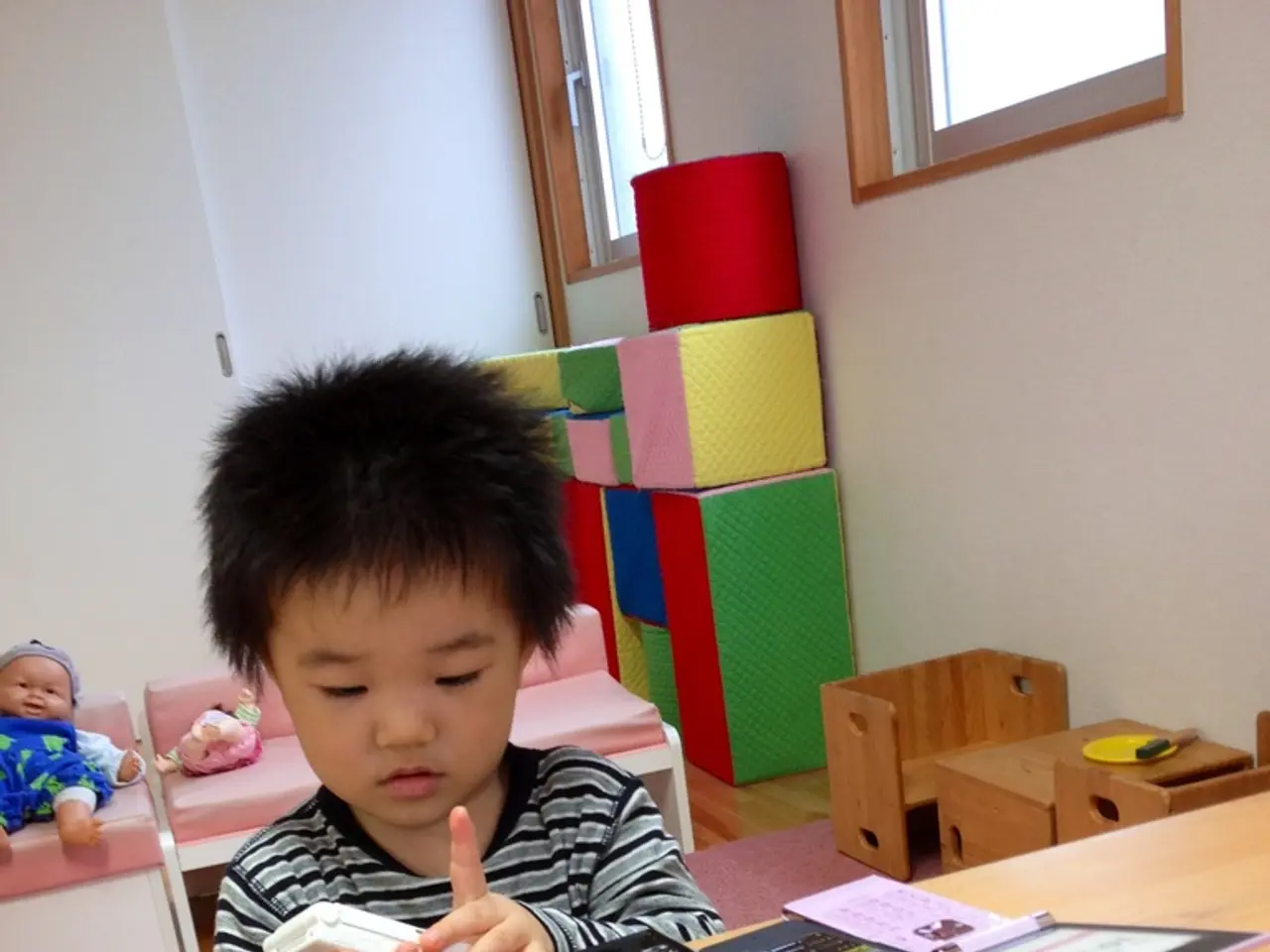High Skills and Their Impact on Daily Tasks
===================================================================
Highly gifted individuals, often characterized by their exceptional abilities in various fields, may face unique challenges in the workplace. These challenges are not limited to managing their abilities effectively, but also include navigating stereotypes and maintaining positive relationships.
Approximately 2% of the global population is highly gifted, with around 1.7 million living in Germany alone. These individuals are known for their ability to achieve outstanding performance, whether in intellectual, craftsmanship, or technical areas. However, it's important to note that the stereotype of overachievers does not always apply to them.
One of the key strategies for highly gifted individuals to optimize their professional lives is adopting a growth mindset. Instead of relying solely on innate talent, focusing on continuous skill development fosters professional growth and resilience. By valuing hard work and learning over fixed natural ability, gifted individuals can encourage collaboration and innovation within teams.
Another important aspect is emotional intelligence and self-awareness. Highly gifted professionals often notice subtle workplace dynamics such as backhanded compliments or micromanagement. By cultivating self-awareness, they can choose when to respond or ignore provocations, maintaining professionalism and preventing unnecessary conflicts.
Adapting to management styles is another crucial strategy. When facing micromanagement or other challenging supervisory approaches, gifted workers may quietly assess and adapt their work tactics to maintain productivity while preserving positive relationships at work.
Clear and structured communication is also vital. Using multiple communication methods—written, verbal, visual, and hands-on—helps in clarifying expectations and aligning tasks with personal strengths. Gifted employees thrive when job roles are clearly defined and tailored, allowing them to contribute effectively.
Promoting an inclusive and supportive workplace environment is equally important. Neurodiverse and gifted workers perform best in settings mindful of their sensory and cognitive needs. Strategies include flexible schedules, quiet workspaces, reduced sensory distractions, and minimizing interruptions, which collectively enhance focus and well-being.
Leaders who promote a growth mindset also create environments that encourage employees to develop skills actively rather than resting on natural ability. This can help highly gifted individuals engage in healthy challenges and take agency over their professional growth.
In addition to these strategies, maintaining a healthy work-life balance, regular exercise, and relaxation techniques like yoga can help reduce stress for highly gifted individuals. However, they may also face interpersonal hurdles, such as being perceived as strange due to their constant generation of new ideas or quick thinking.
In job interviews, openly discussing high achievement is not always beneficial as it can lead to a feeling of inferiority among managers, potentially reducing the chance of hiring. Highly gifted individuals may also experience boredom in their daily work routine if tasks do not match their abilities, leading to feelings of underutilization.
Some individuals discover their high IQ later in life, often after a lifetime of wondering why they clash with others in their professional lives and undergoing multiple therapies. Highly gifted individuals often analyze complex issues quickly and perform more than others in the workplace. However, they may need to slow down to avoid being too noticeable within a team.
If overload and dissatisfaction become too much, it's time to consider a department or job change. By employing these strategies, highly gifted individuals can harness their abilities fully, navigate workplace complexities wisely, and contribute meaningfully while maintaining well-being and positive professional relationships.
[1] Dweck, C. S. (2006). Mindset: The New Psychology of Success. Random House. [2] Gagne, F., & Bouchard, T. J. (1992). 'The heritability of cognitive abilities: A review of twin studies.' Intelligence, 17(2), 131-145. [3] Sternberg, R. J. (2003). 'Understanding intelligence: A practical approach.' Oxford University Press. [4] Sternberg, R. J., & Grigorenko, E. L. (2007). 'The nature of intelligence: Psychometric, developmental, and evolutionary perspectives.' Guilford Press. [5] Silverman, L. K., & O'Hear, J. (2001). 'The misdiagnosis of gifted and talented children and adults: Assessment and educational implications.' Prufrock Press.
- Service and self-development can be crucial for highly gifted individuals, as ongoing skill development fosters professional growth and resilience, encouraging them to take an active role in their professional growth rather than relying solely on their innate talent.
- In the realm of science, technology, education, and career development, the role of leaders who promote a growth mindset becomes instrumental in helping highly gifted professionals thrive. By creating an inclusive and supportive environment, these leaders can facilitate healthy challenges and foster innovation and collaboration, allowing these individuals to contribute meaningfully while maintaining well-being and positive professional relationships.




